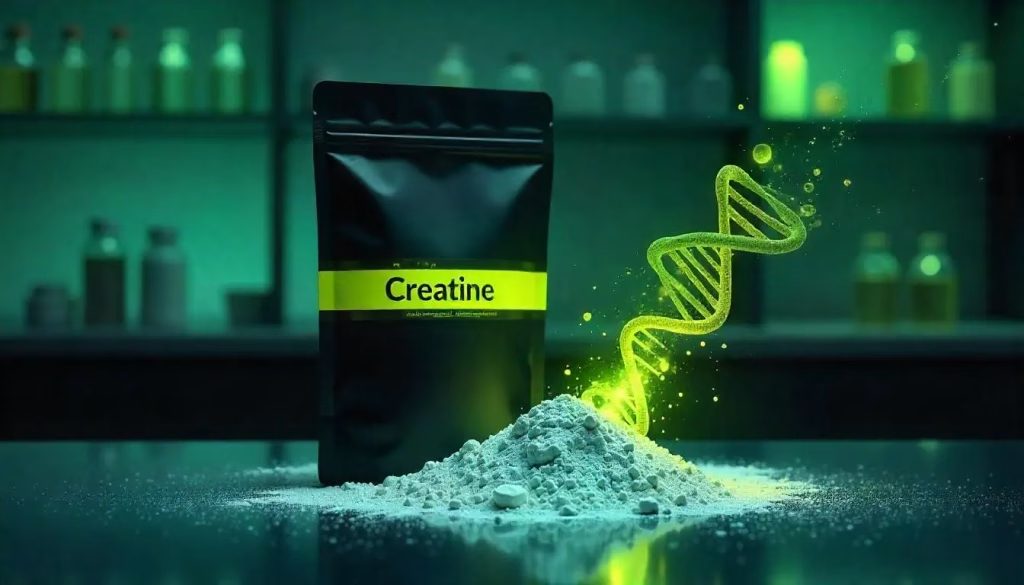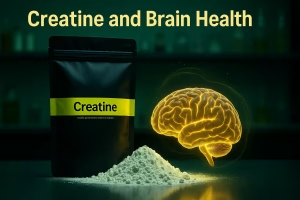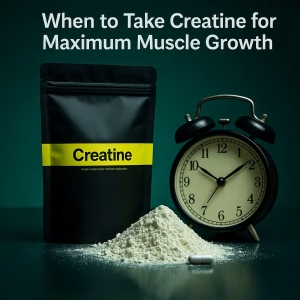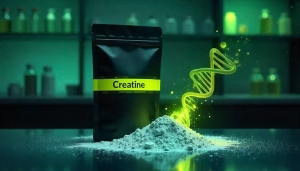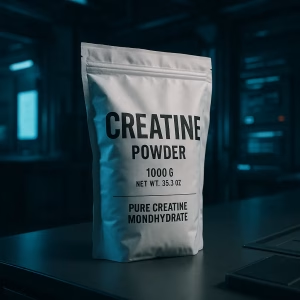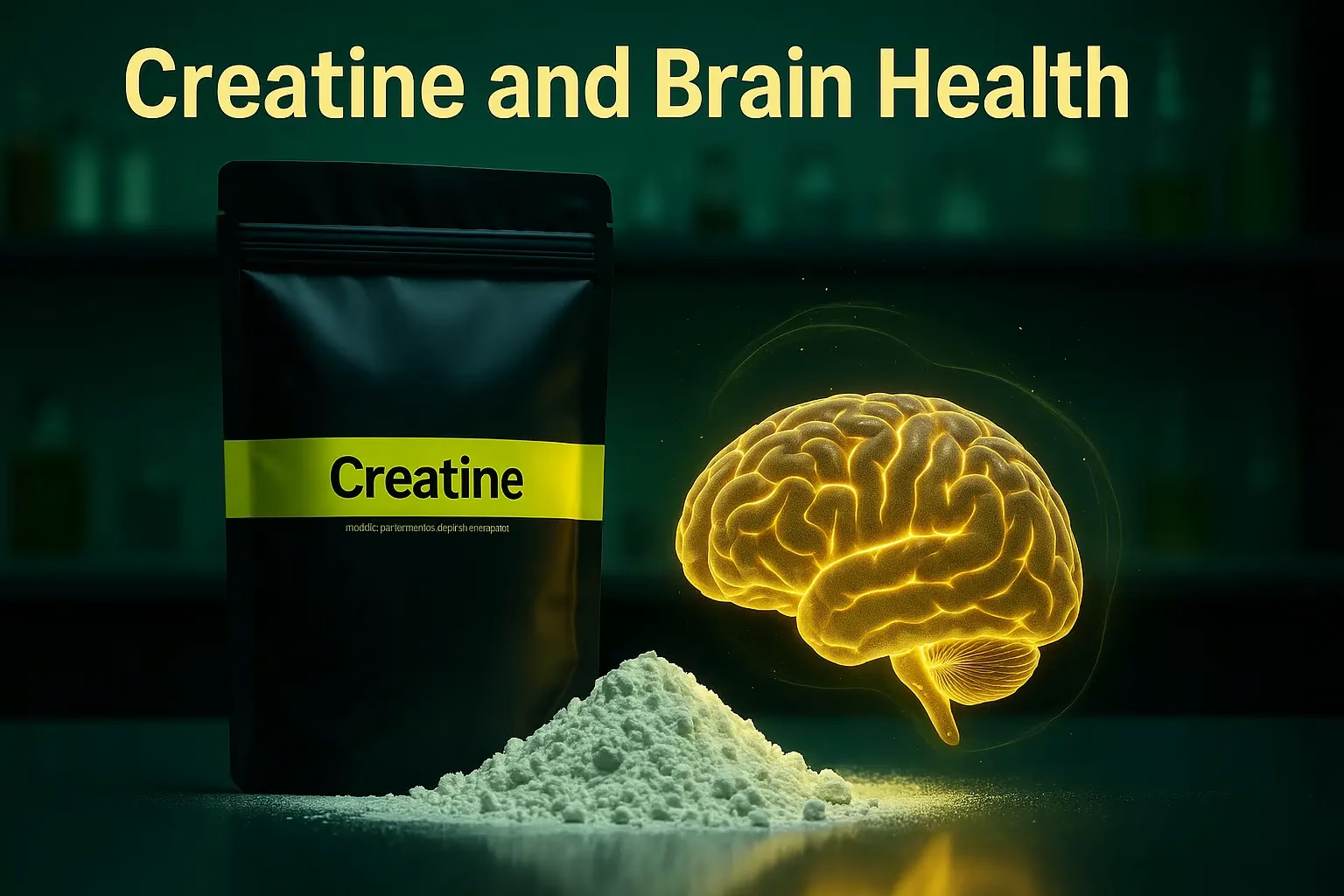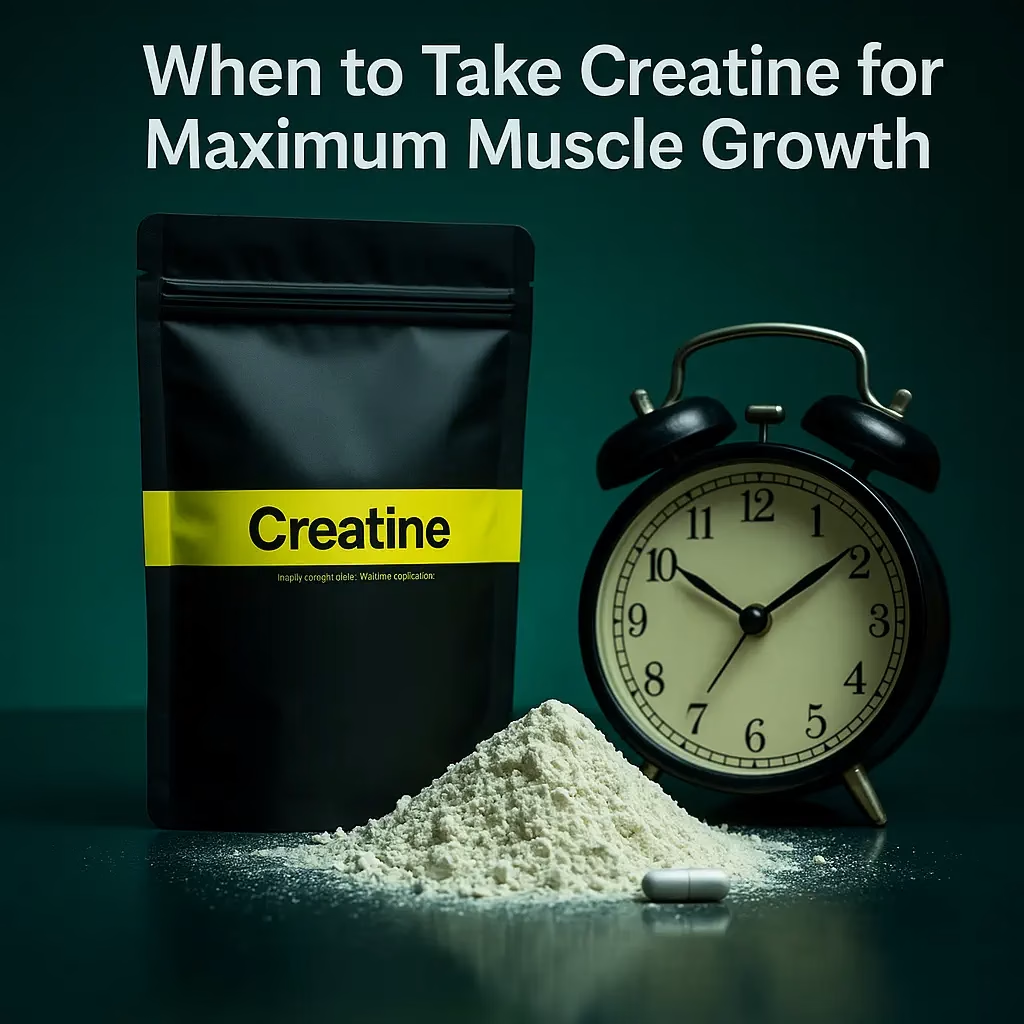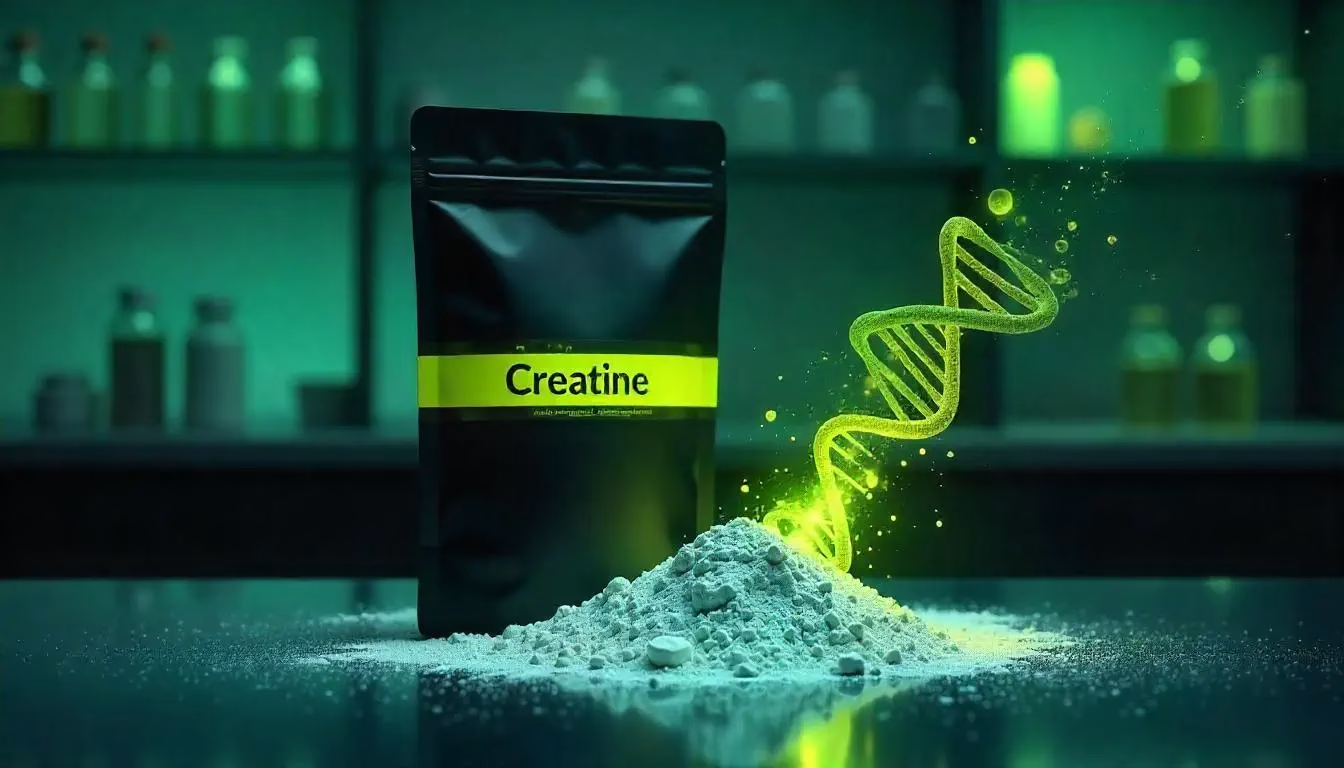Every gym has them—athletes who experience dramatic strength gains and explosive power improvements within days of starting creatine supplementation, while others see minimal benefits despite following identical protocols. This phenomenon has puzzled fitness enthusiasts for decades, leading to the critical question: Why does creatine work better for some men than others?
Why Creatine Works Better for Some Men Than Others (Genetic Factors) represents one of the most scientifically fascinating aspects of sports supplementation. The answer lies deep within your genetic code, where specific polymorphisms, enzyme variations, and cellular transport mechanisms determine your individual response to this extensively researched performance enhancer.
Understanding these genetic factors can transform your approach to creatine supplementation from trial-and-error experimentation to precision-based optimization. This knowledge proves particularly valuable for competitive athletes seeking maximum performance gains, dedicated bodybuilders pursuing muscle hypertrophy, business executives optimizing limited training time, and biohackers exploring the intersection of genetics and human performance enhancement.
What You Are About to Learn
- The specific genetic variations that determine creatine response rates and how they affect muscle uptake efficiency
- Individual phenotype identification strategies to determine your likely response category before supplementation
- Optimization protocols for both high-responders and non-responders to maximize creatine benefits
- Alternative supplementation strategies for genetic non-responders seeking similar performance benefits
- Genetic testing considerations and practical applications for supplement optimization
- Evidence-based modification techniques that can enhance response rates regardless of genetic predisposition
The Genetic Foundation of Creatine Response in 2025
Understanding Creatine Transporter Genetics
Creatine transporter 1 (CreaT1), encoded by the SLC6A8 gene, represents the primary mechanism by which creatine enters muscle cells. This sodium-dependent transporter determines how efficiently your muscles can uptake and concentrate creatine from your bloodstream. Genetic variations in this transporter directly influence your supplementation response.
Polymorphisms in the SLC6A8 gene create significant individual differences in transporter expression and function. Research indicates that certain genetic variants can reduce transporter efficiency by 20-40%, explaining why some individuals experience minimal benefits from standard creatine protocols.
The creatine kinase system—consisting of multiple isoforms including muscle-specific CK-M, brain-specific CK-B, and mitochondrial CK—also demonstrates genetic variability. These enzymes catalyze the phosphorylation of creatine to create phosphocreatine, your muscles’ immediate energy reserve.
Key genetic factors affecting creatine response include:
- SLC6A8 transporter gene variations affecting uptake efficiency
- Creatine kinase gene polymorphisms influencing enzyme activity
- Muscle fiber type genetics determining baseline creatine content
- Methylation pathway genetics affecting creatine synthesis and metabolism
The Responder vs. Non-Responder Phenomenon
Research consistently demonstrates that approximately 20-30% of individuals show minimal response to creatine supplementation, regardless of dosing protocol or duration. These “non-responders” often possess genetic variations that limit either creatine uptake, storage, or utilization.
High-responders typically demonstrate:
- Rapid strength gains (10-20% within 2-3 weeks)
- Significant increases in training volume capacity
- Notable improvements in explosive power output
- Enhanced recovery between sets and sessions
Non-responders commonly experience:
- Minimal strength improvements (<5% after 4-6 weeks)
- Limited changes in training capacity
- Reduced muscle weight gain during loading
- Unchanged phosphocreatine system performance
This genetic variability explains why standardized supplementation protocols produce dramatically different results across individuals.
Genetic Markers That Predict Creatine Response
SLC6A8 Gene Variations
The SLC6A8 gene located on the X chromosome shows several important polymorphisms that affect creatine transport efficiency. Because this gene is X-linked, men (XY) have only one copy, making them more susceptible to transport deficiencies than women (XX).
Common SLC6A8 variants include:
- c.1141C>T polymorphism: Associated with reduced transporter expression
- c.807C>T variation: Linked to decreased creatine uptake efficiency
- Regulatory region mutations: Affecting gene transcription and protein production
Men with these variants may require modified supplementation protocols or alternative approaches to achieve optimal results.
Creatine Kinase Gene Polymorphisms
The creatine kinase system consists of multiple genes (CKM, CKB, CKMT1A, CKMT2) that show significant genetic variation. These variations affect enzyme activity, stability, and expression levels.
CKM gene polymorphisms particularly impact muscle-specific creatine kinase function:
- rs8111989 variant: Associated with altered enzyme kinetics
- rs4884 polymorphism: Linked to changes in protein stability
- Promoter region variations: Affecting enzyme expression levels
These genetic differences can explain why some individuals maintain higher phosphocreatine levels naturally, reducing their potential for improvement through supplementation.
Muscle Fiber Type Genetics
ACTN3 gene variants significantly influence muscle fiber type distribution, which directly affects baseline creatine content and response potential. The ACTN3 gene encodes α-actinin-3, a protein found exclusively in fast-twitch muscle fibers.
Genetic classifications include:
- RR genotype: High fast-twitch fiber percentage, typically higher creatine response
- XX genotype: Lower fast-twitch fiber percentage, potentially reduced creatine benefits
- RX genotype: Intermediate fiber distribution and response potential
Fast-twitch fibers demonstrate higher creatine content and greater phosphocreatine system capacity, making individuals with RR genotypes more likely to respond dramatically to supplementation.
Identifying Your Genetic Response Category
Phenotypic Assessment Methods
Physical characteristics can provide insights into your likely genetic response category before formal testing. These observable traits correlate with underlying genetic variations affecting creatine metabolism.
High-responder indicators:
- Naturally muscular build with good strength-to-weight ratio
- Excellent performance in explosive activities (sprinting, jumping)
- Rapid strength gains from resistance training
- High proportion of fast-twitch muscle fibers
- Enhanced recovery between high-intensity efforts
Potential non-responder characteristics:
- Naturally lean build with lower muscle mass
- Superior endurance capabilities relative to power output
- Slower strength progression from training
- Higher proportion of slow-twitch muscle fibers
- Excellent aerobic capacity and recovery
Baseline Performance Testing
Specific performance assessments can predict creatine response potential:
- Vertical jump test: High-responders typically show above-average explosive power
- Repeated sprint assessment: Good performance indicates functional phosphocreatine system
- Strength-to-bodyweight ratios: Higher ratios suggest favorable creatine genetics
- Training volume tolerance: Ability to handle high-intensity repeated efforts
These assessments provide practical indicators without requiring genetic testing.
Family History Considerations
Genetic traits often cluster within families, making family history a valuable predictor. Observe relatives’ responses to training and supplementation for additional insights.
Family indicators include:
- Parents’ or siblings’ response to creatine supplementation
- Natural athletic abilities within the family
- Muscle building and strength development patterns
- Recovery characteristics and training tolerance
Optimization Strategies for Different Genetic Types
High-Responder Optimization
Genetically favorable individuals can maximize their natural advantages through strategic supplementation approaches:
Enhanced loading protocol:
- Standard loading: 20-25 grams daily for 5-7 days
- Carbohydrate co-ingestion: 50-75 grams simple carbs per dose
- Protein addition: 20-25 grams whey protein with each serving
- Timing optimization: Post-workout and with largest meals
Maintenance strategies:
- Higher maintenance dose: 5-7 grams daily (vs. standard 3-5 grams)
- Continued carbohydrate co-ingestion for enhanced uptake
- Cycle timing with training periodization
- Monitor for signs of over-saturation
High-responders can often push supplementation protocols more aggressively while maintaining safety.
Non-Responder Enhancement Techniques
Genetic non-responders require modified approaches to overcome transport and utilization limitations:
Alternative loading protocols:
- Extended loading: 15-20 grams daily for 10-14 days
- Smaller, more frequent doses: 3-4 grams every 3-4 hours
- Enhanced uptake cofactors: Alpha-lipoic acid, D-ribose, taurine
- Improved solubility forms: Creatine hydrochloride or buffered creatine
Combination strategies:
- HMB supplementation: May enhance creatine uptake through improved membrane stability
- Insulin sensitivity optimization: Chromium, cinnamon extract, or berberine
- Nitric oxide enhancement: L-citrulline or beetroot extract for improved blood flow
- Hydration optimization: Increased water intake and electrolyte balance
SSRP Pro Tip: Non-responders often benefit more from addressing underlying factors (insulin sensitivity, hydration, membrane integrity) than simply increasing creatine dosage.
Intermediate Responder Strategies
Moderate responders can optimize their supplementation through precision timing and combination approaches:
Periodized supplementation:
- Loading phases timed with high-intensity training blocks
- Maintenance during moderate training periods
- Strategic cycling to prevent adaptation
- Combination with other ergogenic aids during peak phases
Enhancement protocols:
- Nutrient timing optimization around training sessions
- Combination with complementary supplements (beta-alanine, caffeine)
- Hydration and electrolyte optimization
- Regular response monitoring and protocol adjustment
Alternative Strategies for Genetic Non-Responders
Phosphocreatine System Alternatives
Beta-alanine supplementation can provide similar benefits through different mechanisms. This amino acid enhances muscular endurance by buffering acid accumulation during high-intensity exercise.
Beta-alanine protocol for non-responders:
- Loading: 3-5 grams daily for 4-6 weeks
- Maintenance: 2-3 grams daily
- Timing: Divided doses with meals to minimize tingling
- Combination: Can be used alongside creatine for synergistic effects
Citrulline malate offers performance benefits through enhanced nitric oxide production and improved blood flow. This supplement can improve training volume and reduce fatigue through different pathways than creatine.
Energy System Optimization
Ribose supplementation can enhance ATP regeneration through alternative pathways. D-ribose serves as a substrate for ATP synthesis, potentially benefiting individuals with genetic limitations in creatine utilization.
Ribose protocol:
- Dosage: 5-10 grams daily
- Timing: Pre and post-workout
- Duration: Continuous supplementation
- Combination: Often effective with creatine for enhanced benefits
Mitochondrial optimization through CoQ10, PQQ, or other mitochondrial cofactors can improve cellular energy production. These supplements target different aspects of energy metabolism that may be more responsive in genetic non-responders.
Genetic Testing: Practical Applications and Limitations
Available Testing Options
Direct-to-consumer genetic testing companies now offer sports and nutrition-focused panels that include creatine-related genetic markers. These tests typically analyze SLC6A8, ACTN3, and creatine kinase gene variants.
Testing considerations:
- Cost: $100-300 for comprehensive sports genetics panels
- Accuracy: Generally reliable for major polymorphisms
- Limitations: May not capture all relevant genetic variations
- Privacy: Consider data usage and storage policies
Professional testing through healthcare providers or specialized laboratories can provide more comprehensive analysis with proper interpretation.
Interpreting Genetic Results
Genetic test results should be interpreted within the context of your individual response and training goals. A “non-responder” genotype doesn’t mean creatine won’t work—it suggests you may need modified protocols.
Key considerations:
- Genetic predisposition vs. actual response can differ
- Environmental factors significantly influence gene expression
- Multiple genes interact to determine final phenotype
- Lifestyle modifications can overcome some genetic limitations
SSRP Pro Tip: Use genetic testing as one tool among many for optimization—your actual response to supplementation remains the most important factor.
Common Misconceptions and Mistakes Regarding Genetic Factors
Misconception 1: “Genetic Non-Responders Should Avoid Creatine Entirely”
The mistake: Assuming that genetic predisposition for lower response means no benefits are possible. Many “non-responders” can achieve significant improvements through modified protocols and combination strategies.
Reality: Genetic factors influence response magnitude, not necessarily the presence or absence of all benefits. Non-responders may experience smaller but still meaningful improvements in training capacity, recovery, or cognitive function.
Misconception 2: “Genetic Testing is Necessary for Effective Supplementation”
The mistake: Believing that genetic testing is required before beginning creatine supplementation. Most individuals can determine their response category through practical assessment and trial periods.
Reality: Genetic testing provides additional insights but isn’t essential for successful supplementation. Phenotypic assessment, baseline testing, and response monitoring provide sufficient information for most individuals.
Misconception 3: “High-Responder Genetics Guarantee Success”
The mistake: Assuming that favorable genetics automatically translate to optimal results without proper implementation. Even high-responders require appropriate dosing, timing, and protocol adherence.
Reality: Genetic advantages must be supported by proper supplementation strategies, training protocols, and lifestyle factors. Poor implementation can negate even the most favorable genetic predisposition.
Misconception 4: “Genetic Factors Only Affect Creatine Response”
The mistake: Focusing exclusively on creatine-specific genes while ignoring broader genetic factors affecting performance and supplementation. Insulin sensitivity, hydration, and metabolic genetics all influence creatine effectiveness.
Reality: Creatine response results from complex interactions between multiple genetic systems. Comprehensive optimization requires considering broader genetic and physiological factors.
Misconception 5: “You Can’t Change Your Genetic Response”
The mistake: Believing that genetic predisposition is fixed and unchangeable. Epigenetic modifications, lifestyle interventions, and targeted supplementation can significantly influence gene expression.
Reality: While you can’t change your DNA sequence, you can influence how genes are expressed through nutrition, training, supplementation, and lifestyle factors. Many genetic limitations can be overcome through strategic interventions.
SSRP Pro Tip: View genetic factors as starting points for optimization rather than fixed limitations—targeted interventions can significantly improve outcomes regardless of genetic predisposition.
Supplementation FAQs: Genetic Factors Edition
Q1: How can I determine if I’m a genetic non-responder without expensive testing?
Answer: Several practical indicators can help identify your response category without genetic testing. Monitor your strength gains, training volume improvements, and body weight changes during the first 2-3 weeks of proper creatine supplementation. Non-responders typically show minimal strength increases (<5%), limited training volume enhancement, and negligible weight gain during loading phases. Additionally, assess your natural athletic abilities—individuals with excellent endurance capacity but limited explosive power often show reduced creatine response. Family history can also provide clues, as genetic traits tend to cluster within families. If you experience minimal benefits after 4-6 weeks of consistent supplementation, consider yourself a potential non-responder and implement alternative strategies.
Q2: Can lifestyle factors overcome genetic limitations in creatine response?
Answer: Yes, targeted lifestyle modifications can significantly improve creatine response regardless of genetic predisposition. Optimizing insulin sensitivity through proper nutrition and exercise can enhance creatine uptake even in individuals with transporter gene variations. Adequate hydration, electrolyte balance, and timing of carbohydrate intake around supplementation can improve cellular uptake efficiency. Sleep quality, stress management, and training periodization also influence gene expression and supplement effectiveness. For genetic non-responders, focusing on membrane integrity through omega-3 fatty acids, reducing inflammation, and supporting mitochondrial function can create more favorable conditions for creatine utilization. While genetics provide the foundation, environmental factors significantly influence the final outcome.
Q3: Are there specific creatine forms that work better for genetic non-responders?
Answer: Genetic non-responders may benefit from alternative creatine forms that address specific transport or solubility limitations. Creatine hydrochloride (HCL) demonstrates improved solubility and may require smaller doses while potentially reducing gastrointestinal issues. Buffered creatine (Kre-Alkalyn) claims better stability and uptake, though scientific evidence remains limited. Micronized creatine monohydrate offers improved mixing and potentially better absorption. However, the most effective approach often involves optimizing uptake cofactors rather than changing creatine forms. Adding alpha-lipoic acid, D-ribose, or taurine can enhance cellular uptake and utilization. The key is addressing the underlying genetic limitations through targeted interventions rather than simply switching creatine types.
Q4: Do genetic factors affect creatine’s cognitive benefits differently than physical performance?
Answer: Genetic factors can influence creatine’s cognitive and physical benefits through different mechanisms. The brain expresses different creatine transporter densities and kinase isoforms compared to skeletal muscle, potentially creating varying response patterns. Some individuals may show minimal muscle performance improvements but significant cognitive benefits, particularly during high-stress situations or sleep deprivation. Brain-specific creatine kinase (CK-B) genetics may influence cognitive response independently of muscle-specific factors. Additionally, individuals with genetic variations affecting neurotransmitter metabolism or oxidative stress may experience greater cognitive benefits from creatine supplementation. Monitor both physical and cognitive performance separately when assessing your response, as genetic factors may create different benefit profiles for each domain.
Q5: How do genetic factors interact with age and creatine response?
Answer: Age significantly modifies genetic factors affecting creatine response through changes in gene expression, protein synthesis, and cellular function. Older individuals may experience enhanced benefits from creatine supplementation due to naturally declining creatine synthesis and muscle mass, potentially overcoming some genetic limitations. Age-related changes in insulin sensitivity, hydration status, and muscle fiber composition can alter response patterns regardless of genetic predisposition. However, genetic factors become more pronounced with age as cellular repair mechanisms decline and gene expression patterns shift. Older non-responders may need more aggressive optimization strategies, while genetic high-responders might maintain their advantages longer. The key is adjusting supplementation protocols based on both genetic factors and age-related physiological changes.
Q6: Can genetic testing help optimize other sports supplements beyond creatine?
Answer: Genetic testing can provide valuable insights for optimizing multiple sports supplements through shared metabolic pathways and transport mechanisms. Variants affecting caffeine metabolism (CYP1A2 gene) can guide pre-workout and stimulant supplementation strategies. Genetic factors influencing antioxidant systems may inform vitamin C, vitamin E, and polyphenol supplementation approaches. Variations in nitric oxide synthesis genes can guide citrulline and arginine supplementation protocols. However, genetic testing is most valuable when combined with phenotypic assessment and individual response monitoring. The supplement industry increasingly recognizes genetic factors in personalized nutrition, but practical application requires understanding how genetic variations translate to real-world supplementation outcomes. Focus on supplements with strong genetic research backing rather than relying solely on genetic predictions.
Advanced Genetic Considerations: Future Directions
Epigenetic Modifications
Epigenetic factors can modify gene expression without changing DNA sequence, offering hope for individuals with unfavorable genetic variants. Lifestyle interventions, training protocols, and nutritional strategies can influence how creatine-related genes are expressed.
Epigenetic optimization strategies:
- Nutrition: Anti-inflammatory foods, omega-3 fatty acids, and antioxidant-rich diets
- Exercise: Specific training protocols that promote favorable gene expression
- Sleep: Adequate recovery for optimal gene regulation
- Stress management: Chronic stress can negatively impact gene expression
Personalized Supplementation Protocols
Future supplementation will likely incorporate genetic testing, biomarker monitoring, and artificial intelligence to create individualized protocols. This precision approach can optimize dosing, timing, and combination strategies based on genetic profile.
Emerging technologies:
- Real-time genetic expression monitoring
- Personalized supplement formulations
- AI-driven protocol optimization
- Integrated health monitoring systems
SSRP Pro Tip: Stay informed about emerging genetic research and personalized nutrition technologies—the field is rapidly evolving with new insights about genetic factors in supplement response.
Take the Quiz
Creatine Genetics Checker
1. Natural body composition before training?
2. How do you perform in explosive tasks?
3. Response to previous creatine supplementation?
4. Muscle-building in your family?
5. Reactions to methylated supplements?
6. Response to carbs post-workout?
Conclusion: Embracing Your Genetic Potential
Understanding Why Creatine Works Better for Some Men Than Others (Genetic Factors) empowers you to optimize your supplementation strategy based on your individual genetic blueprint. While genetics provide the foundation for your response potential, strategic interventions can significantly improve outcomes regardless of your starting point.
Key takeaways for maximizing your genetic potential:
- Genetic factors influence but don’t determine your final response
- Non-responders can achieve meaningful benefits through targeted optimization
- Lifestyle factors significantly modify genetic expression and supplement effectiveness
- Combination strategies often overcome individual genetic limitations
Professional optimization requires understanding your genetic predisposition while implementing evidence-based strategies to maximize your individual response. The future of supplementation lies in precision approaches that consider genetic, phenotypic, and environmental factors together.
Remember that genetic factors represent just one piece of the performance optimization puzzle. Consistent training, proper nutrition, adequate recovery, and strategic supplementation implementation remain the primary determinants of success.
For personalized guidance on optimizing your supplementation strategy based on your genetic profile and individual response patterns, our team at Alpha Rejuvenation provides comprehensive assessment and evidence-based recommendations tailored to your unique genetic and physiological characteristics.
Contact Alpha Rejuvenation:
- Email: experts@alpha-rejuvenation.com
- Phone: 949-642-1364
- Address: 1640 Newport Blvd. Suite #330, Eastside Costa Mesa, CA 92627, USA
Your genetic potential is just the beginning—let us help you maximize your supplementation success through personalized, science-based optimization strategies.
References
- Syrotuik, D.G., & Bell, G.J. (2004). Acute creatine monohydrate supplementation: a descriptive physiological profile of responders vs. nonresponders. Journal of Strength and Conditioning Research, 18(3), 610–617.
- Zuniga, J.M., et al. (2012). The effects of creatine monohydrate loading on anaerobic performance and one-repetition maximum strength. Journal of Strength and Conditioning Research, 26(6), 1651–1656.
- Greenhaff, P.L., et al. (1994). Effect of oral creatine supplementation on skeletal muscle phosphocreatine resynthesis. American Journal of Physiology, 266(5), E725–E730.
- Astorino, T.A., et al. (2012). Individual responses to completion of short-term and chronic β-alanine supplementation: a case study. Journal of the International Society of Sports Nutrition, 9(1), 24.
- Yang, N., et al. (2003). ACTN3 genotype is associated with human elite athletic performance. American Journal of Human Genetics, 73(3), 627–631.
- Salomons, G.S., et al. (2001). X-linked creatine-transporter gene (SLC6A8) defect: a new creatine-deficiency syndrome. American Journal of Human Genetics, 68(6), 1497–1500.
Maximize Your Creatine Strategy: Essential Reading
Ready to take your creatine knowledge to the next level? We’ve created the most comprehensive creatine resource library to help you optimize every aspect of your supplementation:
🔬 Master the Science
Dive deeper into Why Some Men Respond Better to Creatine Than Others and discover how your genetic blueprint determines your supplementation success. Understanding your response type is crucial for cognitive optimization.
⏰ Perfect Your Timing
Learn the evidence-based approach in When to Take Creatine for Maximum Muscle Growth and Performance. While this focuses on physical benefits, the timing principles apply to cognitive enhancement too.
💊 Start Strong
New to creatine? Begin with The Complete Guide to Creatine Loading: Maximizing Your First Week to establish optimal muscle and brain saturation from day one.
🥊 Make Smart Choices
Confused about supplements? Our comprehensive analysis Creatine vs. Pre-Workout: Which Delivers Better Results? will help you make informed decisions about your supplement stack.
Each guide builds on the others to create your complete creatine mastery toolkit.
